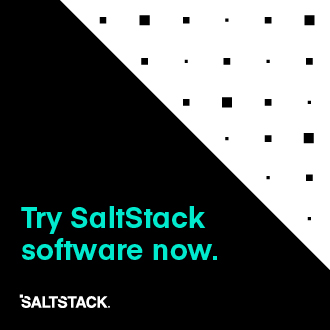salt.modules.event¶
Use the Salt Event System to fire events from the master to the minion and vice-versa.
-
salt.modules.event.fire(data, tag)¶ Fire an event on the local minion event bus. Data must be formed as a dict.
CLI Example:
salt '*' event.fire '{"data":"my event data"}' 'tag'
-
salt.modules.event.fire_master(data, tag, preload=None)¶ Fire an event off up to the master server
CLI Example:
salt '*' event.fire_master '{"data":"my event data"}' 'tag'
-
salt.modules.event.send(tag, data=None, preload=None, with_env=False, with_grains=False, with_pillar=False, with_env_opts=False, **kwargs)¶ Send an event to the Salt Master
New in version 2014.7.0.
- Parameters
tag -- A tag to give the event. Use slashes to create a namespace for related events. E.g.,
myco/build/buildserver1/start,myco/build/buildserver1/success,myco/build/buildserver1/failure.data -- A dictionary of data to send in the event. This is free-form. Send any data points that are needed for whoever is consuming the event. Arguments on the CLI are interpreted as YAML so complex data structures are possible.
with_env (Specify
Trueto include all environment variables, or specify a list of strings of variable names to include.) -- Include environment variables from the current shell environment in the event data asenviron.. This is a short-hand for working with systems that seed the environment with relevant data such as Jenkins.with_grains (Specify
Trueto include all grains, or specify a list of strings of grain names to include.) -- Include grains from the current minion in the event data asgrains.with_pillar (Specify
Trueto include all Pillar values, or specify a list of strings of Pillar keys to include. It is a best-practice to only specify a relevant subset of Pillar data.) -- Include Pillar values from the current minion in the event data aspillar. Remember Pillar data is often sensitive data so be careful. This is useful for passing ephemeral Pillar values through an event. Such as passing thepillar={}kwarg instate.slsfrom the Master, through an event on the Minion, then back to the Master.with_env_opts (Specify
Trueto includesaltenvandpillarenvvalues orFalseto omit them.) -- Includesaltenvandpillarenvset on minion at the moment when event is send into event data.kwargs -- Any additional keyword arguments passed to this function will be interpreted as key-value pairs and included in the event data. This provides a convenient alternative to YAML for simple values.
CLI Example:
salt-call event.send myco/mytag foo=Foo bar=Bar salt-call event.send 'myco/mytag' '{foo: Foo, bar: Bar}'
A convenient way to allow Jenkins to execute
salt-callis via sudo. The following rule in sudoers will allow thejenkinsuser to run only the following command./etc/sudoers(allow preserving the environment):jenkins ALL=(ALL) NOPASSWD:SETENV: /usr/bin/salt-call event.send*
Call Jenkins via sudo (preserve the environment):
sudo -E salt-call event.send myco/jenkins/build/success with_env=[BUILD_ID, BUILD_URL, GIT_BRANCH, GIT_COMMIT]

